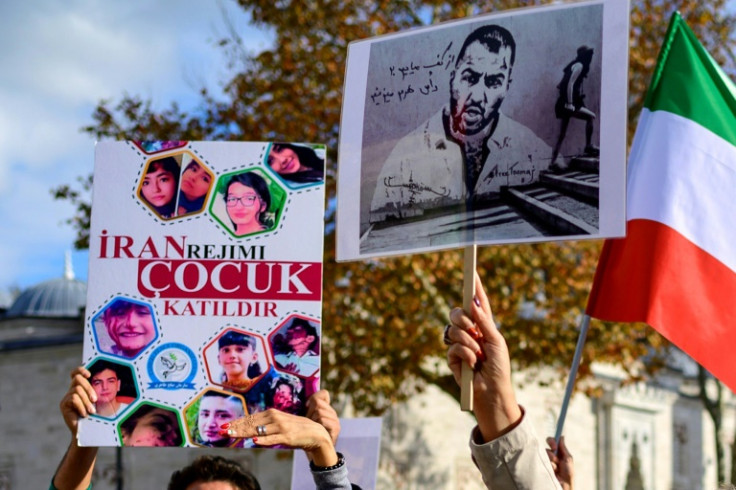#SaveToomaj: Iran Urged To Spare Rapper After 'Grotesque' Verdict

Iranian authorities on Thursday faced pressure to release and clear a prominent rapper sentenced to death in a verdict supporters say is merely revenge for his music backing anti-government protests.
Toomaj Salehi, 33, one of the best-known figures arrested in a crackdown on protests that began in 2022, risks being hanged after the conviction on the sharia charge of "corruption on Earth" by a Revolutionary Court.
The verdict, which can still be appealed, stunned activists as the lower court disregarded a move by the supreme court to overturn a prison sentence Salehi had been given on the same charge.
"This grotesque manipulation of the judicial process aims to silence dissent," said Hadi Ghaemi, the executive director of the New York-based Center for Human Rights in Iran (CHRI).
"Toomaj's imprisonment stems from his vocal advocacy against state oppression."
Supporters used the hashtag #SaveToomaj on social media in a bid to create momentum for an international campaign for his life to be spared.
"This is devastating news and we must all be outraged and do everything in our power to #SaveToomaj. He is a national hero and treasure," the Iran-born British actor Nazanin Boniadi wrote on X, formerly Twitter.
The announcement of the death sentence comes with Iran in the throes of a new crackdown against women deemed to be flouting the Islamic dress code and also ratcheting up executions, which according to Norway-based Iran Human Rights (IHR) have already reached 130 this year.
The verdict was announced shortly after another rapper arrested in the crackdown, Saman Yasin, who had initially been sentenced to death by a lower court, was sentenced to five years in prison, a term to be served in exile in the eastern Kerman province.
"We call for their immediate release. These are the latest examples of the regime's brutal abuse of its own citizens, disregard for human rights, and fear of the democratic change the Iranian people seek," said the office of the deputy US special envoy for Iran, Abram Paley.
The French foreign ministry said it strongly condemned the "unacceptable" verdict against Salehi, saying it "comes on top of numerous other death sentences and unjustifiable executions linked to the 2022 protests in Iran".
Foreign Minister Antonio Tajani of Italy said he "strongly condemns" the verdict.
Nine men have been executed in protest-related cases involving killings and other violence against security forces. Rights groups have said the trials have been grossly unfair.
At least six other men remain at imminent risk of execution after being given death sentences in cases linked to protests, according to IHR.
Salehi was arrested while in hiding in October 2022 during the peak of the protest movement sparked by the death in custody of Mahsa Amini, a 22-year-old arrested by Iran's morality police for an alleged breach of strict dress rules for women.
The months of protest following Amini's death on September 16, 2022 saw hundreds of people killed including dozens of security personnel, and thousands more arrested.
Rights groups say Salehi was subjected to torture and ill-treatment, forced to repent on camera and denied medical treatment and access to his lawyer.
Salehi was subsequently released on bail after spending over a year behind bars but was rearrested less than two weeks later after saying he was tortured in detention. He is currently believed to be held in the central city of Isfahan.
"Issuing the death penalty for expressing opinions and creating artistic works is a sign of the desperation of the Islamic Republic regime and its fear of popular protests," said IHR director Mahmood Amiry-Moghaddam.
Ten UN experts, who are independent of the United Nations, said they were "alarmed by the death sentence and the alleged ill-treatment of Mr Salehi".
"Art must be allowed to criticise, to provoke, to push the boundaries in any society," they said in a statement.
© Copyright AFP {{Year}}. All rights reserved.





















